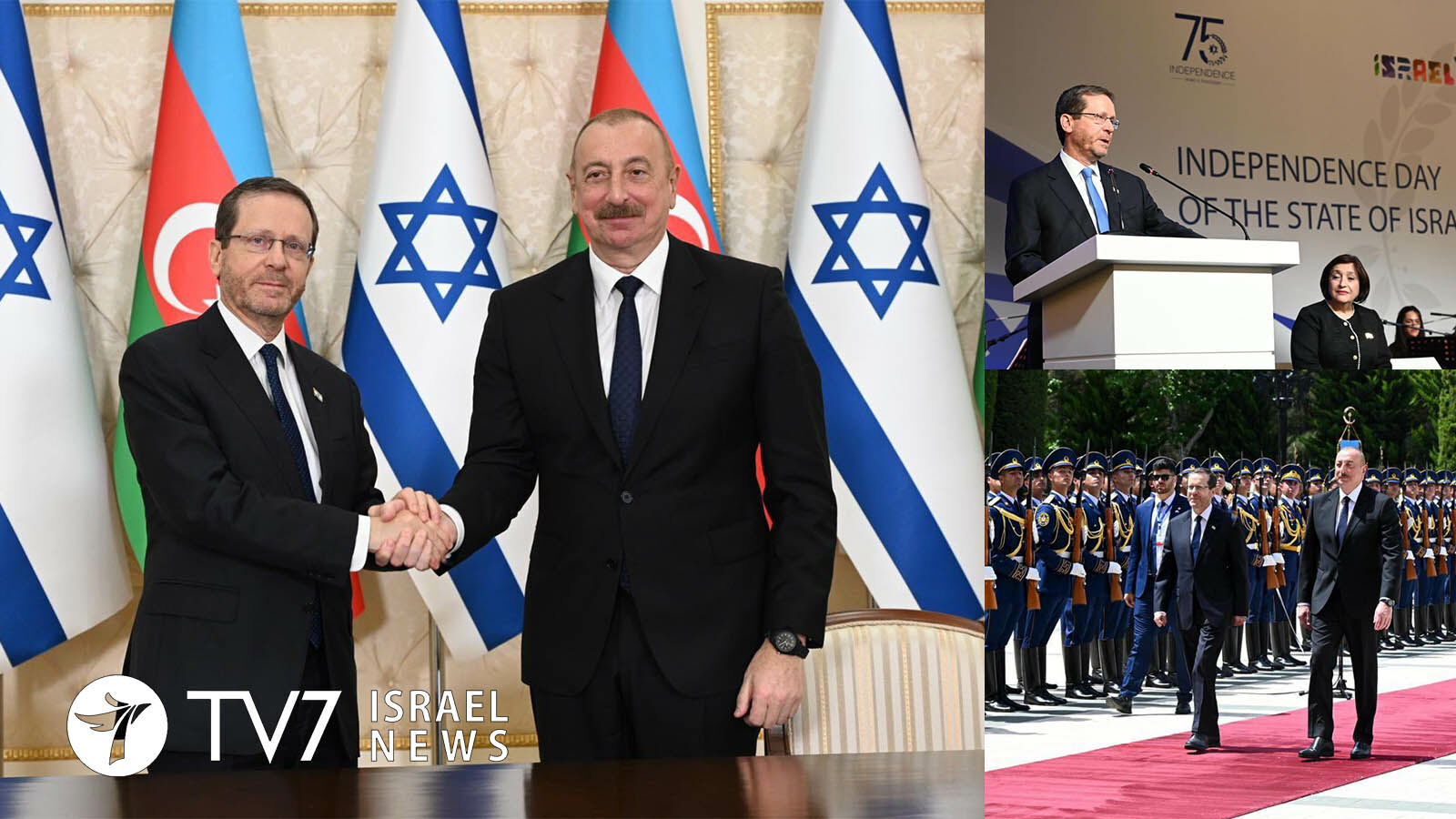The head of the Jewish State traveled to Baku at the invitation of his Shi’ite Muslim counterpart.
By Erin Viner
“Visiting Azerbaijan is a dream come true for me, and for the citizens of my country,” Israeli President Isaac Herzog said at a press conference following his talks with Azerbaijan President Ilham Aliyev.
“Our shared strategy and vision is based on doing good, through honest and open dialogue between Jews and Muslims, a vision that can be dreamed about and also shown,” he told President Aliyev, adding, “It’s no secret that your country is Muslim with a majority of Shiite followers, and yet the love and affection between our countries is an example of how we can change the world and move forward.”
Azerbaijan is home to one of the largest Jewish communities in the Muslim world, estimated to number between 12,000 – 18,000 people.
Describing ties between the two states as “based on deep roots,” Herzog invited Aliyev and his wife to visit Israel “as a symbol of the amazing friendship between us.”
“I see Azerbaijan making a big change in the world, in the Asian region, and of course in the Middle East. We are looking at the regional-security structure that is threatened by Iran, a topic we discussed in depth, and we look forward to the development of cooperation between us in many fields such as academia, agriculture, and many other fields,” said President Herzog.
The Azeri leader remarked that the visit is a visible demonstration of the “closeness” between Jerusalem and Baku, and that the opening of its embassy in Israel will “make it possible to raise relations to additional heights.”
The two countries have maintained bilateral relations since 1991, after Israel was one of the first countries in the world to recognize the independence of Azerbaijan in December 1991.
While Israel opened an embassy there in 1993, Baku did not reciprocate until 29 March 2023 – marking the first such inauguration by a Shiite country in the Jewish State. The development “is further evidence of the strengthening of relations between the countries. Azerbaijan is a Muslim country and its strategic location makes the relationship between us of great importance and great potential,” Israeli Foreign Minister Eli Cohen remarked at the time.
Governments of both countries have been working to deepen existing strategic relations, particularly on the formation of a united front against the Islamic Republic of Iran, which borders Azerbaijan.
Herzog noted that he and Aliyev held critical conversations regarding “the entire global and regional security structure that is endangered and threatened by Iran.”
Aliyev expressed gratitude of growing defense cooperation. “Access to modern Israeli equipment in this area for many years, which helps us to modernize our defense capability, and to be able to protect our statehood, our values, our national interest, and our territorial integrity,” he underscored.
Israel is estimated to provided nearly 70% of all weapons deliveries to Azerbaijan from 2016 to 2020 (amounting to 17% of total Israeli arms exports). Moreover, Jerusalem increased defense supplies during the six-week 2020 Nagorno-Karabakh conflict, during which Azerbaijan triumphed over Armenia as Jerusalem increased arms supplies to Baku.
The furthering of bilateral and regional energy cooperation was also on the two leaders’ agenda for discussion. Israel is also a major client of Azerbaijan’s oil industry, currently purchasing over 30% of its supply from Baku.
Other matters included commitment to advance bilateral cooperation in the economic, education, academic, culture, sports and health sectors. President Herzog was accompanied on the visit by Health and Interior Minister Moshe Arbel, who signed signed an agreement on healthcare cooperation with his Azeri counterpart Teymur Musayev.
